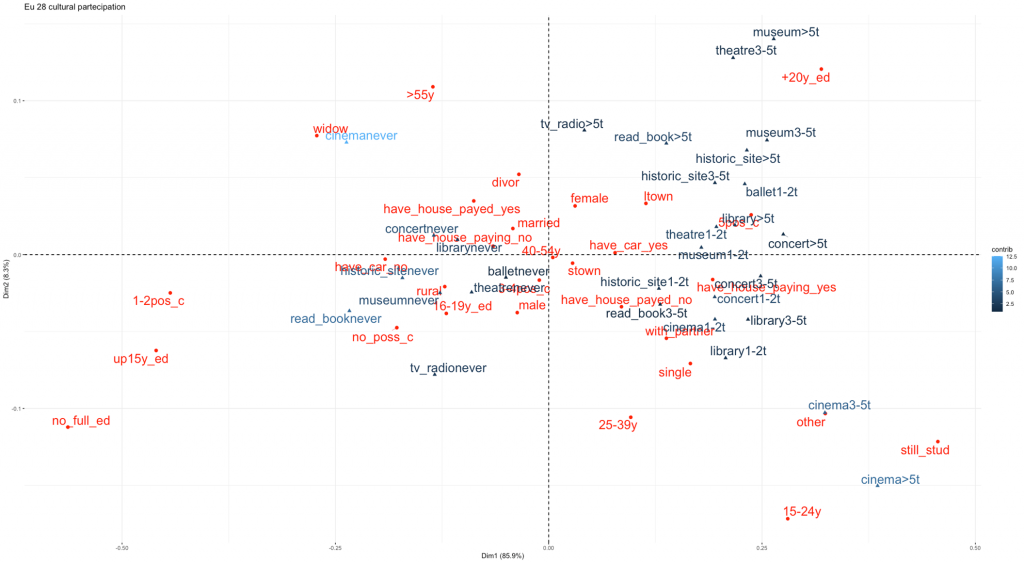Drawing on Eurobarometer data, Guiseppe Lamberti and Jordi López of the Spanish INVENT team compared the cultural participation of Europeans in 28 countries (EU 28) in 2007 with 2013 to analyze the effect of the economic crisis on the evolution of social inequalities in cultural participation.
For both periods, the researchers considered to what extent people participated in a wide range of activities over the last 12 months and how this was related to social indicators such as age, gender, years of education, marital status, possessions, and place of residence. A correspondence analysis was conducted using data of 2013 as reference (see diagram below).
The analysis showed that participation (low vs. high) is the first scale that discriminates among Europeans. Participation was associated with age (older vs. younger), possession of cultural reproduction instruments (no or low vs. high), residence (rural vs. small-large cities), and gender (male vs. female). The second dimension separates Europeans according to the type of participation (legitimate versus contemporaneous culture), and it was linked to education (more educated vs. less-still studying) and age (older vs. younger). Inequality in participation thus appeared to be first and foremost associated with level of education and cultural capital. Guiseppe Lamberti and Jordi López will present their analysis at the upcoming ESA conference Barcelona and look forward to discussing their findings with other attendees. More details will follow on this website.

Comments are closed.



 This project has received funding from the European Union’s Horizon 2020 research and innovation programme under grant agreement No
This project has received funding from the European Union’s Horizon 2020 research and innovation programme under grant agreement No